

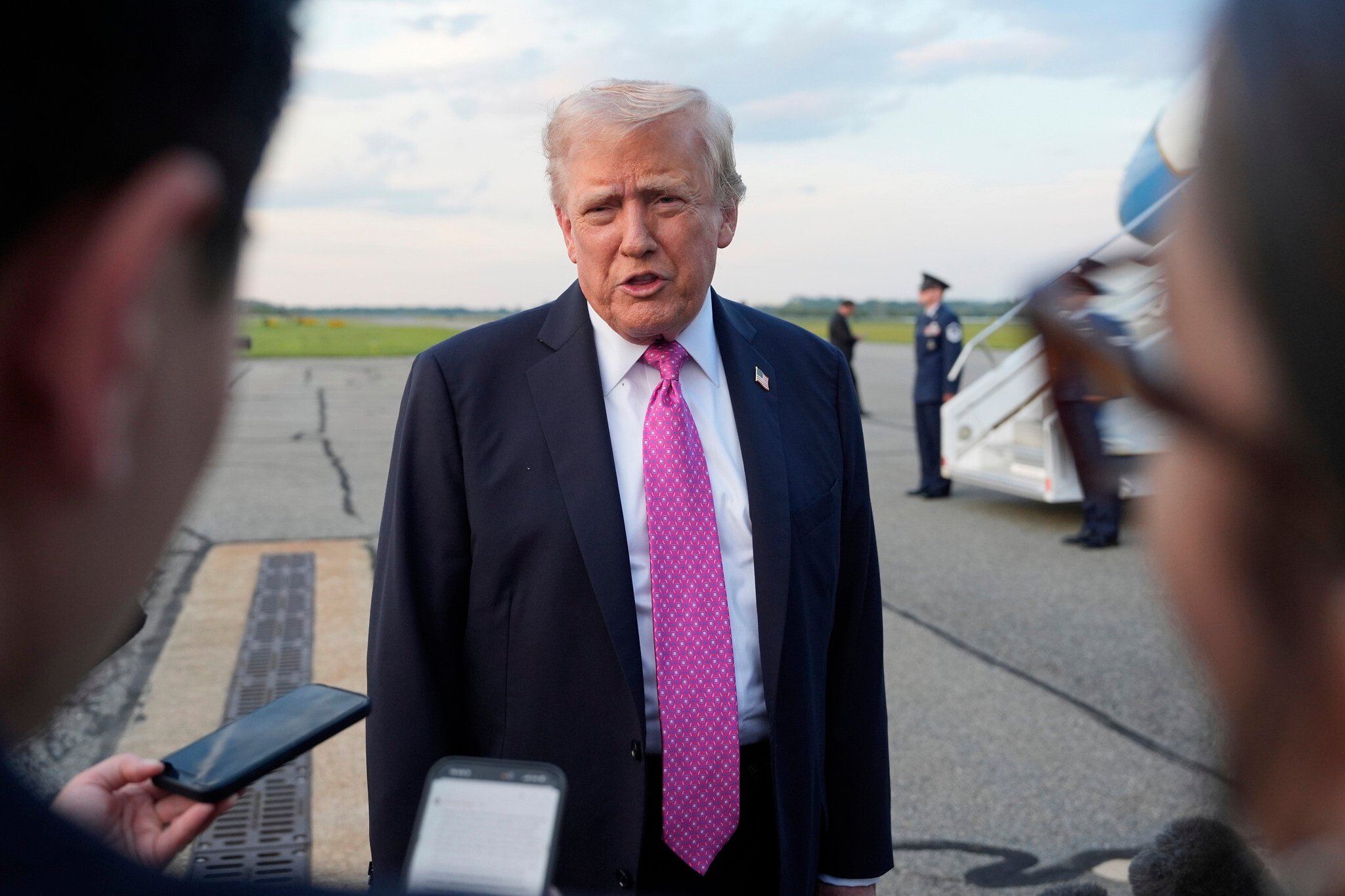
The Times of Israel is liveblogging Monday’s events as they unfold.
In rare Israel interview, Netanyahu rejects claims he’s extending war needlessly, compares it to Battle of Fallujah
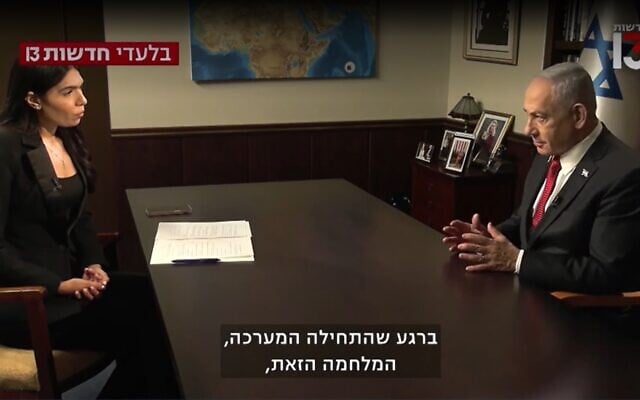
Prime Minister Benjamin Netanyahu gives a rare interview to an Israeli outlet that isn’t staunchly supportive of him, rejecting accusations that he has extended the Gaza war for political reasons, and arguing that the almost two-year war has gone by relatively quickly, considering the task at hand.
Speaking to Channel 13 news as part of an upcoming exposé by the outlet on protocols from June’s 12-day war with Iran, Netanyahu says that “the moment this war began, I said on its second day that we would change the face of the Middle East.”
“We are not only fighting Hamas — we are fighting the whole Iranian axis, of which Hamas is only one part,” he says. “And we eliminated the axis’s components, one by one. First of all, we tended to Hamas, we had to enter Rafah and take control of the Philadelphi [Corridor], then move to the north and do the pager [operation] and eliminate Hezbollah and advance, and as a result, [the rule of Syria’s Bashar] al-Assad fell. All these stages in effect took apart the Iranian axis as they had been preparing it to eliminate Israel.”
Asked if this means that had the October 2023 Hamas onslaught — which started the war — not happened, Iran would have gone nuclear, Netanyahu says: “No, I don’t know that, because we would surely have seen this, but Iran planned this chokehold and wanted to take these last few steps in its nuclear program — weaponization, meaning creating a nuclear weapon — very carefully, and it did this very carefully.”
The interviewer then asks Netanyahu if he understands those who believe that the swiftness of the Iran war shows that he can wrap up wars quickly when he wants to, and that he is therefore extending the war in Gaza for almost two years to serve his own political survival.
“This question and its premise are bad-natured and false,” Netanyahu answers, making a parallel with the US-led takeover of Iraq’s Fallujah in 2004.
“How long did it take to win in Fallujah? Nine months,” he says. “For nine months, the whole world took on 3,000 terrorists in a place that is far less complex than Gaza. So first of all, I think we are doing it faster than all those armies combined, under much more difficult conditions. Secondly, we are conducting this war with challenges that nobody else has. This is a war with hostages. When there are hostages, you are careful, you do ceasefires.
“Thirdly, you had an American administration that, after a few weeks of unreserved support, started not only having reservations, but also blocking us,” the premier adds, taking aim once again at former US president Joe Biden’s administration, and acknowledging that Donald Trump’s administration has been very supportive since it took power in January.
“What happened was, we didn’t only need to defeat Hamas — we needed to defeat the entire Iranian axis, including a war with Iran itself. So I think that we are now in the decisive stage. What started in Gaza will end in Gaza.”
Further quotes from the interview are set to air Tuesday evening as part of the full exposé about the Iran war protocols.
NY governor endorses Mamdani, saying they discussed antisemitism
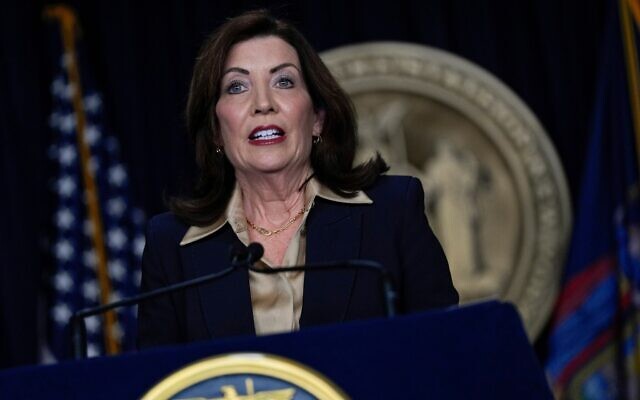
New York Governor Kathy Hochul endorses New York Assemblymember Zohran Mamdani for mayor, in a major boost for the harsh US critic of Israel.
Hochul is a moderate Democrat and a firm supporter of Israel, while Mamdani is on the far left and has made harsh criticism of Israel central to his politics.
Mamdani won the Democratic party mayoral primary earlier this year, making him the heavy favorite in November’s general election.
His leading opponent in the general election is former governor Andrew Cuomo, another pro-Israel moderate and Hochul’s predecessor. Mamdani defeated Cuomo in the primary.
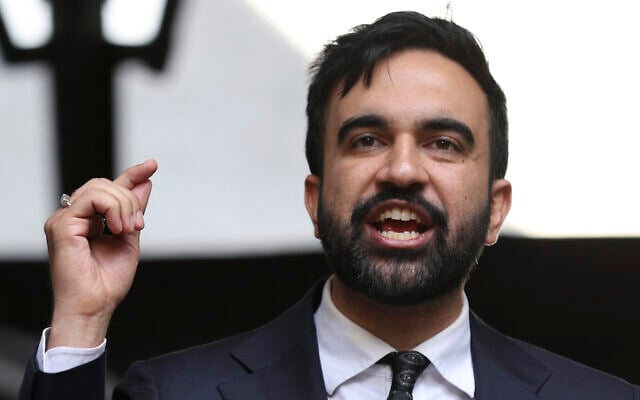
Hochul, announcing her endorsement in The New York Times, says she has been speaking with Mamdani for months, including about Jewish issues.
“We discussed the need to combat the rise of antisemitism urgently and unequivocally,” Hochul says. “I’ve been glad to see him meet with Jewish leaders across the city, listening and addressing their concerns directly. I look forward to working together to make sure New Yorkers of all faiths feel safe and welcome in New York City.”
Mamdani’s Jewish allies are mainly far-left Israel critics.
Mamdani is divisive among Jewish voters. He was the leading candidate among Jews in the four-way race, with around 37% support, according to a July poll by the pro-Israel New York Solidarity Network. That figure is similar to his support among the non-Jewish population.
While 60% of Jews were opposed to Mamdani, their support was divided among the other mayoral candidates.
Slightly more than half of the city’s Jews believe Mamdani is antisemitic, and 58% believe the city will be less safe for Jews if Mamdani is elected, the poll found.
Hochul’s endorsement is a major win for Mamdani because she is a moderate Democratic Party veteran whose backing will likely assuage voters who are concerned about the upstart Mamdani’s far-left politics and policy proposals.
Rubio, Netanyahu to meet at 10 a.m. Monday, then deliver press statements — State Department
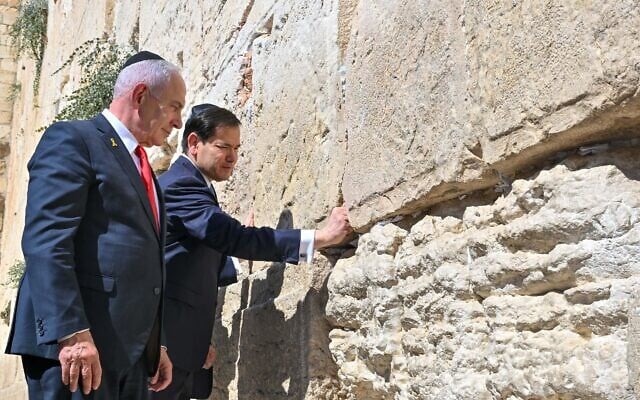
Visiting US Secretary of State Marco Rubio will hold a bilateral meeting with Prime Minister Benjamin Netanyahu at 10 a.m. local time Monday, the State Department says.
At 1:55 p.m., after the meeting in Jerusalem, Rubio and Netanyahu will deliver joint press statements, the announcement adds.
Trump: Israel must be ‘very, very careful’ in its approach to America’s ‘great ally’ Qatar
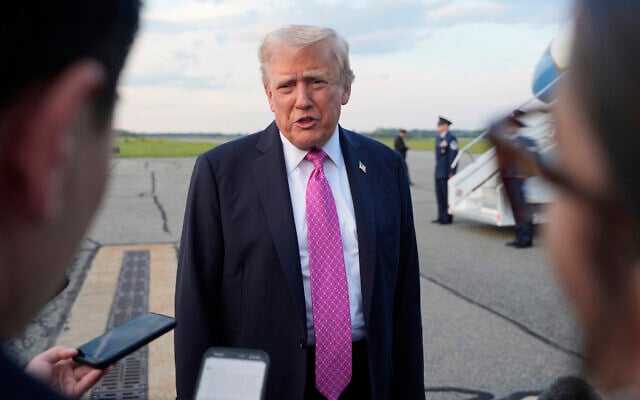
US President Donald Trump says Israel must be “very careful” about how it handles Qatar.
At Morristown Airport in New Jersey, Trump is asked by a reporter whether he has a message to Prime Minister Benjamin Netanyahu regarding last week’s Israeli strikes on Hamas leaders in Qatar, which appear to have failed to take them out.
“My message is that they have to be very, very careful. They have to do something about Hamas, but Qatar has been a great ally to the United States,” Trump answers.
After dining with Doha’s ruler Mohammed bin Abdulrahman al-Thani on Friday, the US president calls him a “wonderful person” and adds that he has told him Qatar needs “better public relations” since “people talk of it so badly, and they shouldn’t be.”
Reporter: What is your message to Netanyahu about strikes on Qatar?
Trump: They have be very careful. They have to do something about Hamas. But Qatar has been a great ally to the US. A lot of people don’t know that. pic.twitter.com/HyfZlLN1Ab
— Acyn (@Acyn) September 14, 2025
Haifa oil refinery can’t open new sulphur site until emissions transgressions are probed
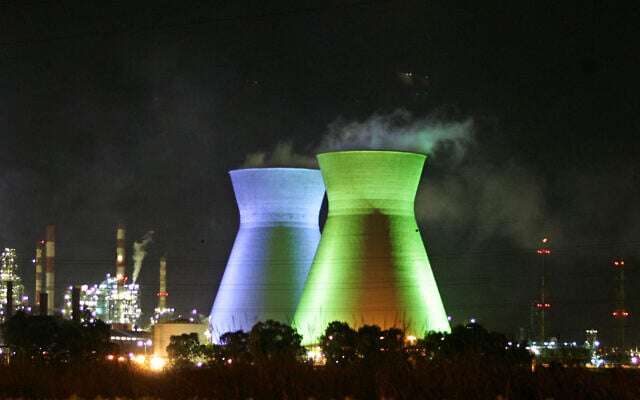
A planning committee decides not to approve a bid by the Bazan oil refinery in the northern city of Haifa to build a facility to solidify sulphur until it has examined the circumstances around benzene emissions in July that were 100 times higher than normal, as well as protocols for activating an emergency team.
Celebrating the delay and expressing determination to close Bazan altogether in line with a government decision to shutter the petrochemical complex by 2030 and rehabilitate the entire Haifa Bay area, the environmental organization Green Course notes the company’s repeated violations of its air emissions permits, which have resulted in millions of dollars in fines.
Government tells High Court it will return to old method of firing attorney general, with certain conditions
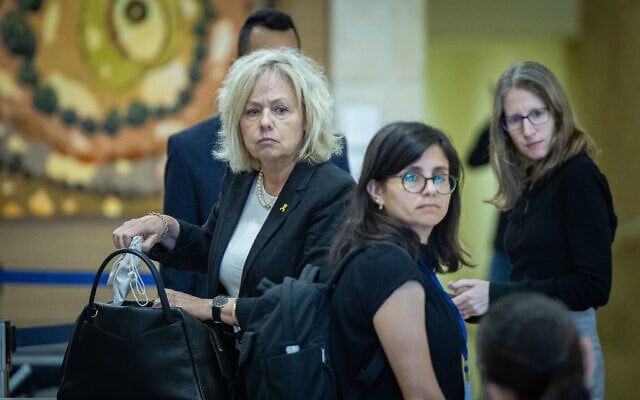
The government tells the High Court of Justice that it is willing to return to the original method used to fire an attorney general, after the court recommended that it rescind the method used to try and oust Attorney General Gali Baharav Miara earlier this year.
Earlier this month, the court decided unanimously to recommend to the government that it cancel its decision to fire Baharav-Miara, and gave it until September 14 to inform the court whether it accepted the recommendation to abolish the new method for firing the attorney general that the government established in June, and by extension to cancel the dismissal of Baharav-Miara.
The government’s response, submitted by Justice Minister Yariv Levin, comes just minutes before the 11:59 p.m. deadline.
The government voted unanimously on August 4 to fire Baharav-Miara, but only after it failed to complete the dismissal process established in the year 2000, which determined that a public, professional committee be charged with recommending the appointment and dismissal of attorneys general.
In order to try and push through her dismissal, the government had established a ministerial committee to make the recommendation instead, and adopted that committee’s recommendation when it fired her in August.
In its September 1 decision, issued in response to petitions against Baharav-Miara’s ouster, the court recommended to the government that it return to the original method for firing the attorney general by consulting the public, professional committee established in 2000.
The government now informs the court that it will hold a hearing on the possibility of returning to the previously-approved method, if the decision can be made within the next two weeks, and with guarantees that the committee will not include a former justice minister or attorney general, given that it was unable to find any who were willing to take part in the panel previously.

